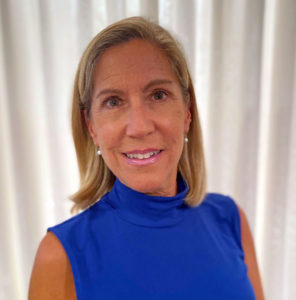 Ed Talk is a biweekly opinion column. The views expressed are solely the author’s.
Ed Talk is a biweekly opinion column. The views expressed are solely the author’s.
As the school year begins online for students across the country, parents face the challenge of supporting the educational needs of their children while working at their own jobs.
This challenge is real for all working parents. But the opportunities that parents have to meet their children’s needs vary greatly depending on socio-economic status.
Some families with sufficient financial resources are turning to learning pods. These are small groups of students who will gather in homes or rented spaces with an adult who is paid to supervise them while learning online. Some pods will be led by teachers.
An internet search of “learning pods” reveals many companies that will create pods and provide adults to supervise and/or teach. The websites for these companies offer pods for pre-kindergarten through grade 12, with two students to nine students per pod. Schedules can be five days per week, half-day or full-day.
The cost? One website provides a pod for students in grades K-4, Monday through Friday from 9:00 a.m. to 2:00 p.m. with one educator at a cost of $4,583 per month per child for a three-student pod and $1,528 per month per child for a nine-student pod.
There certainly are benefits for those who can afford learning pods. For students, an adult can provide in-person assistance with their education in a small group setting. And interaction with peers promotes social-emotional learning. Parents benefit too, because they can work inside or outside the home while their children are engaged in distance learning.
But students from low-income families who cannot afford the pod fees are left out. They cannot benefit from a paid teacher in the home to enhance their distance learning and they miss out on in-person interaction with other students. Their parents may have to choose between giving up their jobs outside the home and going to work and leaving their children home alone.
Parents in Arlington, like those around the country, are forming learning pods. One website helps parents connect for free and a local company creates pods with an initial fee and monthly costs.
Long before COVID-19, significant disparities in academic outcomes existed between groups of students in Arlington. These disparities will grow with months of distance learning and the disparate opportunities that students have at home depending on their socio-economic status.
In his Back to School Update during the School Board’s July 30th meeting, Arlington Public Schools (APS) Superintendent Dr. Francisco Duran stated that APS is working with Arlington County Government and community partners to address the need for childcare for families while APS provides distance learning.
Arlington might look to the city of San Francisco, which has committed to opening 40 community learning hubs in September. These will be located at recreation centers, libraries, and non-profit sites, providing full-day supervision for low-income students. Each hub will have access to technology for distance learning, enrichment activities, and meals.
In addition, APS should develop a plan for in-person instruction focused on students most in need. Such an approach is consistent with APS summer school, which is being offered online this summer for elementary students who need strengthening in math and literacy and secondary students who received low grades last school year.
Before APS opted for distance learning this fall for all students, the APS hybrid learning plan offered in-person learning two days a week. If social distancing is required when APS opens schools again, instead of limited, in-person instruction for all students, APS should offer in-person instruction for more hours for students most in need. This includes low-income students who have not had the benefit of small group instruction in learning pods.
Abby Raphael served on the Arlington School Board from 2008-2015, including two terms as Chair. She also led the Washington Area Boards of Education for two years. Currently she co-chairs the Destination 2027 Steering Committee, is a member of the Board of the Arlington YMCA, and works with Project Peace, the Community Progress Network, and Second Chance.

